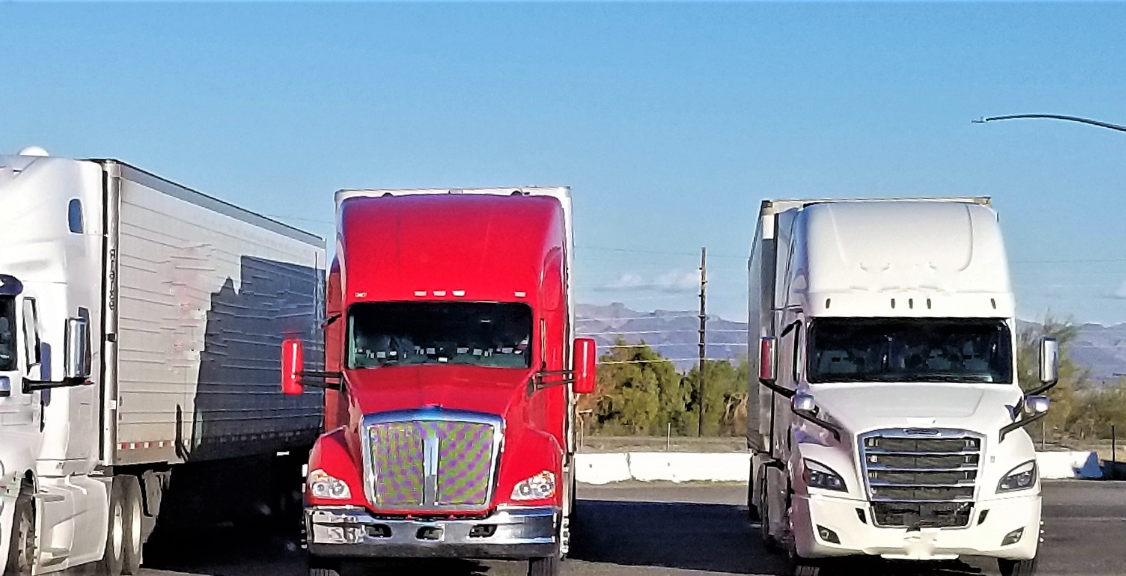Key Takeaways
- Driving without a working ELD can lead to substantial fines, out-of-service orders, and negative effects on your CSA score.
- Understanding and sticking to FMCSA’s ELD mandate is important for avoiding penalties and maintaining compliance.
- Proactive measures, such as driver training, regular ELD maintenance, and internal audits, can significantly reduce the risk of violations.
- Partnering with a reliable ELD provider can facilitate compliance and provide valuable support for your fleet operations.
- Further compliance, ELDs offer benefits like improved safety, increased efficiency, and better data insights for enhancing your business.
Table of Contents
An Overview of Consequences of Not Having an ELD
The penalty for not having an ELD can be severe, leading to costly fines, out-of-service orders, and damage to a driver’s compliance record. The Federal Motor Carrier Safety Administration (FMCSA) enforces strict rules on electronic logging devices (ELDs) to ensure accurate tracking of driving hours. Non-compliance can result in ELD violations, affecting CSA scores and increasing the risk of audits. Understanding the consequences of failing to meet ELD requirements is essential for owner-operators, fleet managers, and trucking companies to maintain compliance and avoid unnecessary financial and legal consequences.
The ELD mandate, implemented by the FMCSA, requires most commercial motor vehicle drivers to use an electronic logging device to track hours of service (HOS). Failing to comply can lead to ELD violation fines, increased roadside inspections, and possible out-of-service orders that disrupt operations. FMCSA enforcement efforts ensure that violators face penalties that can significantly affect their business. Knowing how to avoid ELD penalties is essential for maintaining a good compliance record and avoiding the risks of non-compliance.
What is an ELD and Why is it Required?
An Electronic Logging Device (ELD) is a system that automatically records a commercial driver’s hours of service (HOS) to ensure compliance with FMCSA regulations. It replaces traditional paper logbooks, reducing errors and preventing log tampering. ELDs track driving time, rest breaks, and on-duty hours, helping to prevent driver fatigue and improve road safety. These devices connect to the vehicle’s engine to provide accurate, real-time data on driving activity.

The FMCSA’s ELD mandate, which took effect on December 18, 2017, requires most commercial motor vehicles to use ELDs instead of paper logs. The mandate applies to truck drivers and motor carriers who operate under HOS regulations. By ensuring accurate record-keeping, ELDs help fleet managers, owner-operators, and enforcement officials monitor compliance more effectively. Non-compliance can lead to serious consequences, including ELD violations, fines, and out-of-service orders.
ELDs offer several benefits over traditional paper logs:
- Accuracy – ELDs automatically record driving time, ensuring accurate and reliable records.
- Efficiency – ELDs remove the need for manual record-keeping, saving drivers and carriers time and effort.
- Reduced Paperwork – ELDs reduce the amount of paperwork associated with HOS compliance.
- Improved Safety – By enforcing HOS rules, ELDs help prevent driver fatigue, a major contributor to truck accidents.
ELDs help maintain safety and compliance in the trucking industry by tracking driving hours accurately. They prevent drivers from exceeding legal limits and ensure required rest breaks are taken. This reduces fatigue-related accidents and keeps roads safer for everyone.
Penalties for Not Having an ELD
Driving without an ELD, or operating a vehicle with a malfunctioning ELD, can result in different penalties. These penalties can affect both drivers and motor carriers, and they can be quite severe. Understanding these consequences is essential for maintaining compliance and avoiding costly disruptions to your business.

Here are the main penalties for not having an ELD:
- Fines – One of the most direct consequences of ELD violations is fines. The amount of the fine can differ depending on the exact violation and the jurisdiction. ELD violation fines can range from hundreds to thousands of dollars per violation.
- Out-of-Service Orders – Drivers caught operating a commercial vehicle without a required ELD or using a non-functioning one can receive an out-of-service order. This means they cannot continue driving until the issue is fixed, leading to delivery delays and operational disruptions. These delays can affect schedules, cause financial losses, and harm customer relationships.
- CSA (Compliance, Safety, Accountability) Scores – ELD violations can also negatively affect a motor carrier’s CSA scores. The FMCSA uses CSA scores to track and assess the safety performance of motor carriers. A high number of ELD violations can lead to lower CSA scores, which can result in increased examination from regulators, higher insurance premiums, and even difficulty securing contracts.
- Legal Repercussions – Repeated or serious ELD violations can lead to legal consequences further fines and out-of-service orders. FMCSA enforcement may take legal action against drivers or motor carriers who consistently ignore compliance rules. Penalties can include license suspension or, in severe cases, criminal charges.
The penalties for not having an ELD or for ELD violations are significant and should not be taken lightly. From substantial fines and out-of-service orders to the long-term effect on CSA scores and potential legal repercussions, non-compliance can have severe consequences for both drivers and motor carriers. Knowing these penalties helps ensure compliance and keeps operations running safely and efficiently.
How to Avoid ELD Penalties
Avoiding ELD penalties requires following regulations and taking proactive steps to stay compliant. Ensuring that all vehicles have FMCSA-approved ELDs, keeping devices properly maintained, and training drivers on correct usage can help prevent violations. Regularly reviewing logs for errors and staying updated on rule changes also reduces the risk of ELD violations and fines. Here are some important strategies:

- Proper ELD Installation and Usage – Ensure that your ELD is properly installed and set up according to the manufacturer’s instructions. Train your drivers on how to use the ELD effectively, including logging duty status changes, reviewing reports, and handling malfunctions. Regular maintenance and updates of the ELD software are also important.
- Driver Training – Invest in complete driver training programs that cover all parts of ELD usage and compliance. This training should include topics such as HOS regulations, ELD functionality, and how to handle common scenarios. Regular refresher courses can also help reinforce driver knowledge and prevent errors.
- Regular Audits and Inspections – Conduct regular internal audits of your ELD data to identify and correct any errors or inconsistencies. This can help prevent potential violations during roadside inspections or FMCSA audits. Additionally, work with your ELD provider to schedule regular maintenance and calibration checks to ensure the device is functioning properly.
- Staying Updated on Regulations – The FMCSA may update ELD regulations from time to time. Stay informed about any changes and ensure that your ELD practices are in compliance with the latest requirements. You can find the latest information on the FMCSA website.
- Partnering with a Reliable ELD Provider – Choose a reputable ELD provider that offers reliable hardware, software, and support. A good provider can help you with installation, training, maintenance, and compliance support.
Additional Tips:
- Communicate with drivers – Regularly communicate with your drivers about ELD requirements and best practices. Encourage them to report any issues or concerns immediately.
- Use a backup system – Have a backup plan in place in case your ELD malfunctions or becomes unavailable. This could apply using paper logs or a backup ELD device.
- Monitor CSA scores – Keep track of your CSA scores and take steps to improve them if necessary. A lower CSA score can increase the chance of roadside inspections and potential penalties.
By following these tips, you can seriously reduce the risk of ELD violations and maintain compliance with FMCSA regulations. Remember, investing in driver training, proper ELD maintenance, and regular audits can pay dividends in the long run by preventing costly penalties and ensuring the safety and efficiency of your fleet operations.
FMCSA Enforcement and Roadside Inspections
To ensure compliance with ELD regulations, the FMCSA conducts regular enforcement activities, including roadside inspections. Understanding these enforcement procedures can help you prepare for potential roadside checks and minimize the risk of penalties.

FMCSA Enforcement – The FMCSA uses different methods to enforce ELD compliance, including:
- Roadside inspections – During these inspections, safety officers will review driver logs and ELD data to check for compliance with HOS regulations.
- Audits – The FMCSA may conduct audits of motor carriers to assess their compliance with ELD regulations and other safety standards.
- Data analysis – The FMCSA can analyze ELD data submitted by carriers to identify potential violations and trends.
Roadside Inspections – Roadside inspections are a common way for the FMCSA to enforce ELD compliance. During these inspections, safety officers will typically:
- Request to see the driver’s ELD records.
- Inspect the ELD device to ensure it’s functioning properly.
- Verify that the driver’s hours of service comply with FMCSA regulations.
- Check for any supporting documents, such as bills of lading or dispatch records.
Preparing for Roadside Inspections – To minimize the risk of violations during roadside inspections, it is important to be prepared. Here are some tips:
- Ensure that your ELD is properly installed, calibrated, and functioning correctly.
- Train your drivers on how to use the ELD and how to present their records during a roadside inspection.
- Keep all required supporting documents, such as bills of lading and dispatch records, readily available.
- Review your ELD data regularly to identify and correct any potential issues before an inspection.
Additional Tips:
- Be cooperative and respectful during a roadside inspection. Answer the officer’s questions truthfully and provide all the necessary documentation.
- Know your rights. You have the right to refuse a roadside inspection, but this could lead to further examination. It is best to consult with a legal professional if you’re unsure about your rights.
Knowing FMCSA enforcement procedures and staying prepared for roadside inspections helps reduce the risk of ELD violations. Keeping ELDs properly maintained, ensuring drivers understand how to use them, and regularly reviewing logs for accuracy can prevent compliance issues. Staying updated with regulations and addressing any problems immediately helps avoid fines and operational disruptions.
Ensuring Smooth Operations by Following ELD Regulations
Failing to comply with the ELD mandate can lead to serious consequences, including fines, out-of-service orders, and legal repercussions. FMCSA enforcement ensures that drivers and motor carriers using non-compliant or missing ELDs face penalties that affect operations and finances. ELD violation fines can change based on the severity of the offense, while out-of-service orders immediately halt operations, causing delays and financial losses. Repeated violations may also lead to CSA score deductions, increased audits, and in extreme cases, legal action or license suspension. These penalties not only affect individual drivers but also create challenges for fleet managers and businesses that rely on timely deliveries.

Avoiding ELD penalties requires proper compliance with regulations, regular maintenance of ELDs, and ongoing driver training. Keeping accurate records, ensuring all vehicles have FMCSA-approved devices, and staying updated on rule changes can help prevent violations. Routine log reviews and preparation for roadside inspections reduce the risk of unexpected penalties. Understanding the enforcement procedures and taking proactive measures to maintain compliance helps drivers and fleet operators run a smooth, legally compliant operation while avoiding unnecessary fines and disruptions.
Stay Compliant with Reliable ELD Solutions
Staying compliant with ELD regulations is essential to avoiding fines, out-of-service orders, and legal penalties. Geosavi provides reliable, FMCSA-approved ELD solutions that help drivers and fleet managers maintain compliance effortlessly. Our user-friendly ELD systems, real-time tracking, and automated reporting simplify compliance while reducing the risk of violations. With expert support and ongoing updates, We ensure that your fleet stays ahead of changing regulations and passes roadside inspections without issues. Partnering with us means better CSA scores, fewer disruptions, and a more efficient operation.
Contact us today to get started with Geosavi’s trusted ELD solutions and ensure your fleet stays compliant. Avoid costly penalties, reduce disruptions, and keep your operations running smoothly with a reliable ELD system.